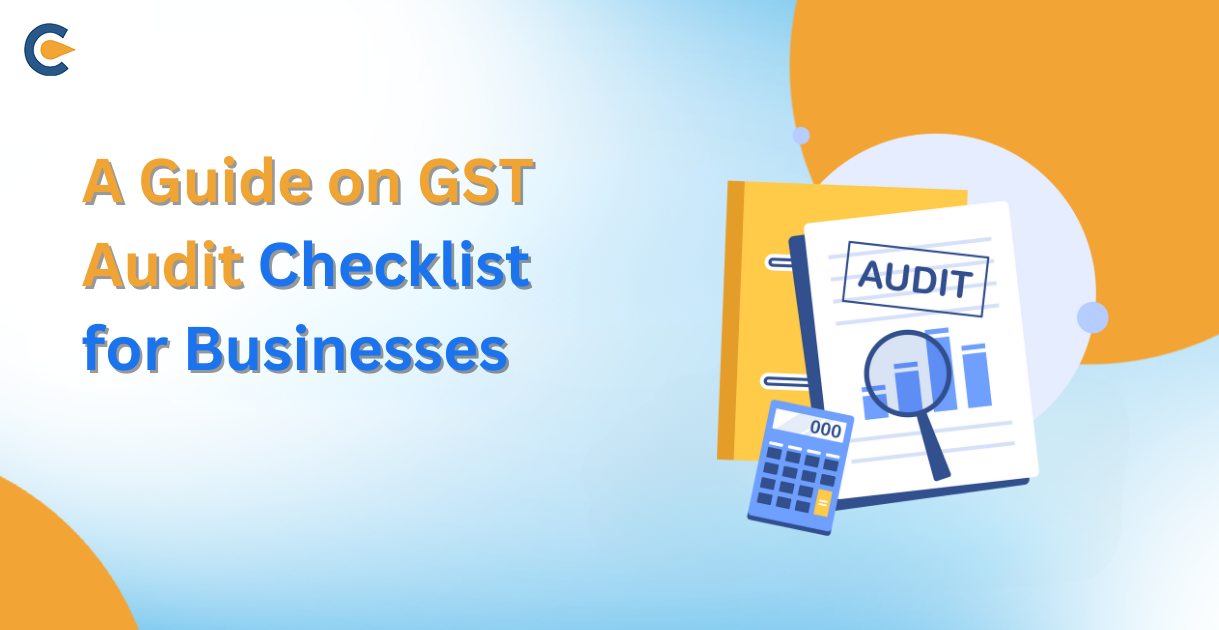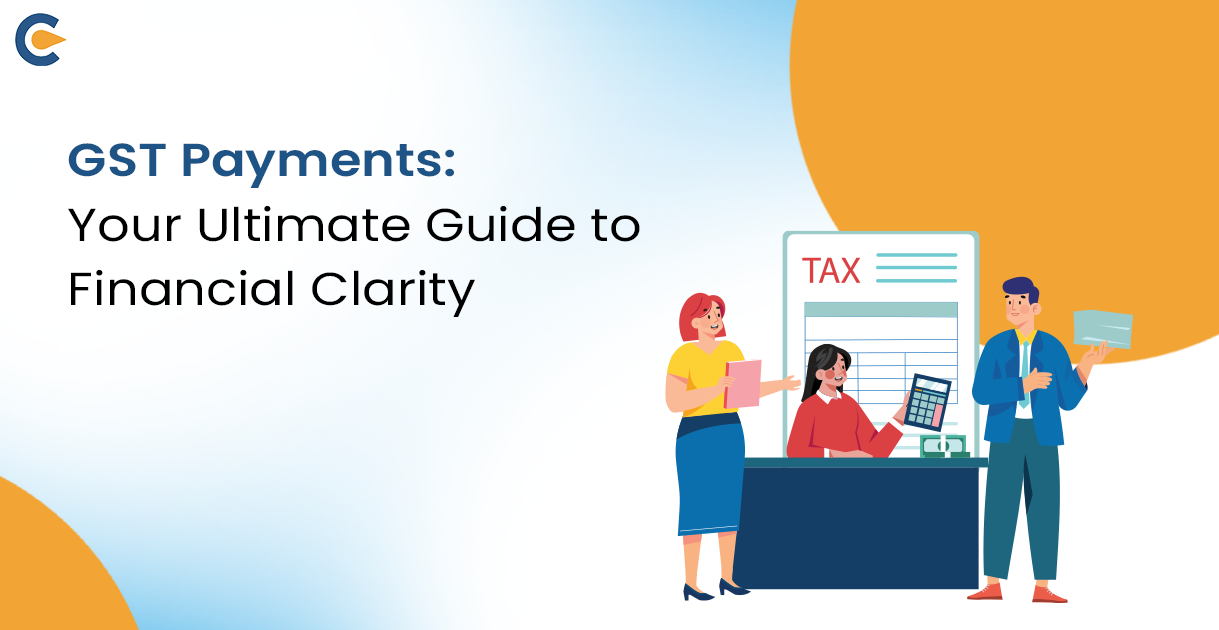The Goods and Services Tax, 2017, is a supply-based tax system applicable to a valid supply of goods or services. Every entity that is engaged in the business of interstate or international supply and procurement of goods and services is required to have a valid GST Registration. The Tax Authority issues a GSTIN Number to the entity or organization, which is the identification of GST registration. In order to claim GST input tax credit on inward supply, such as purchases, and to collect and pay GST on outward supplies, such as sales, the assessee or taxpayer needs a GSTIN as per the GST Act. The GST Audit is applicable to businesses and entities whose aggregate turnover of sales of services or goods exceeds a value of Rs. 2 crores. Businesses that have an aggregate turnover of more than Rs. 5 crores annually must file a reconciliation statement in Form GSTR – 9C.
GST Audit Checklist
In order to initiate a tax audit, the assesses must prepare a GST Audit Checklist with the help of experienced professionals. GST Audit Checklist includes various items and heads under the CGST Act. They are –
- Reconciliation Statement
Businesses having an annual turnover exceeding Rs. 5 crores are required to file a reconciliation statement in order to synchronize the books of accounts between monthly and quarterly returns. After filing monthly returns from GSTR -1 and GSTR – 3B and annual returns in GSTR- 9, the assessee is required to file such reconciliation statements in Form GSTR – 9C. This is required to eliminate inconsistency and reconcile the value of returns filed consecutively in a single accounting year.
- GST on reverse Charge Mechanism
The GST payable on valid supply under the Reverse Charge Mechanism has to be paid in cash by the receiver of goods and services. The Input Tax Credit can be availed by the supplier within the same month. It is the duty of the auditor to ensure whether GST on the reverse charge Mechanism has been paid or not.
- Interest on Late Payment of GST
It is an important item of the GST Audit Checklist. Interest chargeable on late payment of GST is 18% p.a., which has to be paid by the assessment to the Tax Authorities. The auditor shall also verify if any notices have been issued by the tax authority to the assessee in this regard.
- Requirement of E-Way Bill
An E-way bill is issued by the transporter of goods carrying the same from one place to another. A GST-registered person has to obtain an e-way bill if the value of goods transported exceeds rs. 50,000/-. The auditor must check whether the assessee has a valid e-way bill or not in order to ensure that the goods were tallied and invoices issued duly.
- Tallying Income Tax and GST Turnover
In addition to checking and confirming the returns submitted to the GST and Income Tax authorities regarding their turnover under the GST Act and the IT Acts, respectively, the auditor and taxpayer should make sure that the Goods and Service Tax Turnover under the GST Act and the Income Tax Turnover under the Income Tax Act are accurately reported.
Type of GST Audits
Since businesses have different turnovers and streams of supply, separate GST Audit checklist procedures are applicable to them. There are three categories of GST Audit available to taxpayers are –
- Ordinary or Departmental Audit
This audit is ordered or conducted by the authorities as per section 65 of the CGST Act,2017. It is applicable to all businesses that have an aggregate annual turnover equal to more than Rs. 2 crores. Such an audit can be undertaken by any Cost Accountant or Chartered Accountant of the taxpayer’s choice and has to be completed within a period of 3 months.
- Statutory or audit based on turnover
This audit is applicable to business. It can be authorized by the Commissioner or any other tax authority that can order a GST audit of the assesses by giving 15 days’ notice to the taxpayer. This type of audit is applicable to businesses that have turnover exceeding rs. 2 crore. It can be conducted by an order of the Commissioner of CGST/SCGT or any Tax Authority. The auditor in these types of audits is appointed by the Tax Authority itself.
- Special Audit
Section 66 of the CGST Act provides for a Special Audit of an assessee. In this CGST Audit, the Assistant Commissioner, with directions from the Commissioner, can order the books and accounts of the assessee to be audited within a period of 90 days. The auditor presents a report identifying any unpaid taxes, incorrect refunds or ITC claims, inaccuracies, delays in payment of tax liabilities, etc.
Conclusion
GST Audit is an overall assessment and analysis of the GST obligations of an assessee. GST Audit Checklist is the preliminary check and verification of various details and requirements that are required to be fulfilled by the taxpayer. while preparing the list of statutory obligations items and heads to taxable by the person. At Corpbiz, we will provide comprehensive check listing services for GST Audit as well as the Audit Process itself. To know more about our services and price quotes, visit us today.
Frequently Asked Questions (FAQs)
- 1. What Is a GST Audit Checklist?
A GST audit checklist is an examination of accounts, records, returns, and other documents. Along with other GST Act compliances that are required to be confirmed by a qualified professional before the actual Audit Process.
- 2. How many types of GST Audits are there?
There are three categories of GST audits available to the assesses. They are – Ordinary or Departmental Audits, Statutory Audit, and Special Audit.
- 3. What is the GST Reconciliation Statement?
Businesses that have an annual turnover exceeding Rs. 5 crores are required to file a reconciliation statement in order to synchronize the books of accounts between monthly and quarterly returns fields. Such a statement is filed in Form GSTR – 9C.
- 4. Who has the authority to order a statutory audit?
Statutory audits can be ordered by the Commissioner of CGST/SGCT or any other Tax Authority. The authority would appoint a chartered accountant or cost accountant to act as the assessee's official auditor.
- 5. What forms is an assessment entity required to fill if its annual turnover exceeds Rs. 5 crores?
If the annual turnover of the assess organization exceeds Rs. 5 crores annually it is required to file monthly returns in from GSTR -1 and GSTR -3B and annual returns in GSTR- 9. After that, the assessee is required to file such a reconciliation statement in Form GSTR – 9C. This is required to eliminate inconsistency and reconcile the value of returns filed consecutively in a single accounting year.
- 6. What is the Reverse Charge Mechanism?
The reverse charge mechanism is of the meaning that the person who is the receiver of the goods or services is responsible for paying the tax applicable to it. The goal of shifting the cost of GST payments to the recipient is to tax services imported, to exclude some categories of providers.
- 7. What is an Input Tax Credit?
Input Tax Credit refers to GST paid by a registered person on the purchase of goods and services that are used in business activities. The Input Tax Credit can be used to set off the GST liability on the supply of goods or services by the registered person.
- 8. What is the time period for the completion of the Special Audit?
As per section 66 of the CGST Act, 2017, the time period for completion of a special audit, as authorized by the Commissioner or Tax Authority, is 90 days.
Read Our Article: Checklist For FY 2022-23 GST Compliance











